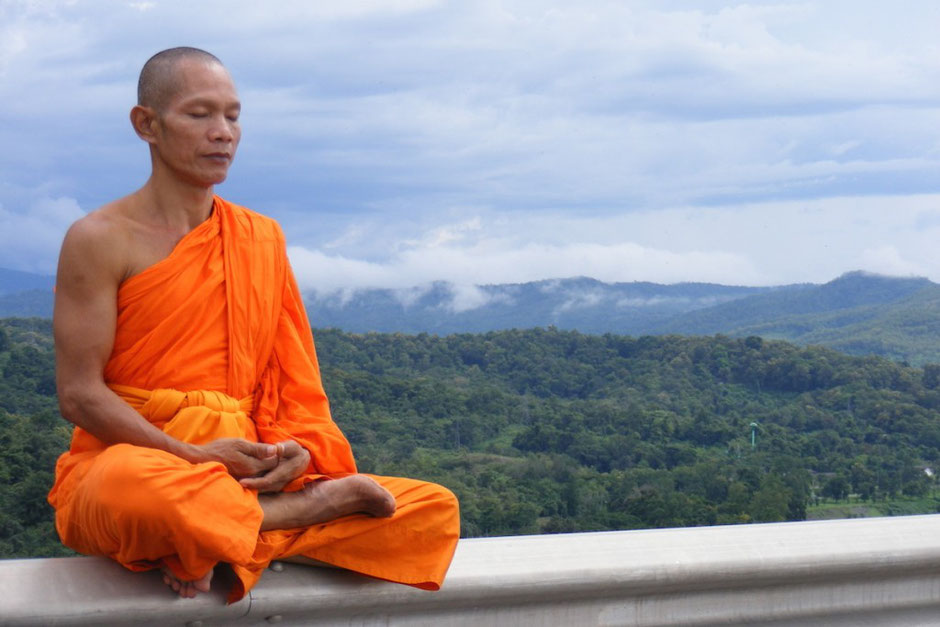MINDFULNESS MEDITATION
Everyone Possesses The Seed Of Mindfulness - The Key Is To Cultivate It

What is Mindfulness Meditation?

Mindfulness Meditation is a practise which is becoming more and more essential in today’s busy world. Taken from traditions in Buddhist teachings, mindfulness is the practise of developing self-wisdom, for both yourself and the environment, to gradually lead towards a freedom of suffering, known as “Enlightenment”. Numerous studies have shown that worry, stress, and rumination leads to mental illnesses such as depression and anxiety and that mindfulness is a proven technique to counter these conditions and reduce mental stress and illness. While mindfulness has been practised for centuries by Buddhists, it is becoming more popular across all cultures in informal settings in an effort to combat the extreme stresses of daily modern life.
While our program is called “Mindfulness Meditation”, there are many different aspects to the journey you will take with us. We utilize the fields of yoga, meditation, and psychology to assist in the transformation of self and create a greater self-awareness from breathing to thinking. However, mindfulness is not just about yourself and a major part of our project is assisting in awareness of the environment around you. Methods of permaculture, alternative energy, and natural building help to shape the environment around us, helping it to thrive instead of killing it. Mindfulness exists in the daily lives of Thai people and is very much a part of Thai Culture, making Thailand the best setting to embark upon your own Mindfulness Meditation adventure!
Mindfulness Meditation Teachings in Thailand
Yoga

An essential part of developing mindfulness is the practise of yoga. While many people associate yoga with movement – the various poses and breathing techniques – the art of yoga also works on focusing your mind and developing self-awareness. Performing yoga throughout the day helps your mind and body to relax.
Meditation

Mediation is about bringing attention to each and every sense in your body, from the sensations of breathing in one’s nostrils to the gentle movements of the abdomen when inhaling and exhaling. It is natural for your mind to wander during this practise, but the key is to recognize this, accept it non-judgmentally, and return to your focus.
Non-Violence

Non-violence is a way of life for Buddhists and practicing non-violent communication and actions is an essential ingredient to Mindfulness Meditation. Confrontation, aggression, and violence are all destructive behaviors for both yourself and others. Practicing non-violent communication assists you on your way to enlightenment.
Natural Buildings

Mindfulness in nature comes through using materials, construction, and services which promote sustainability. Natural buildings are created from organic building materials, recycled materials, and forgoing materials that highly-processed and pollution creators. This type of building is achieved through active thinking.
Gardens

Gardening and permaculture allows you to reconnect with nature and design a way of living through natural ecosystems. Learning about designing gardens, growing food in a variety of places, repairing environmentally damaged land, and designing long-lasting green buildings are all part of the mindfulness garden project.
Alternative Energy

Alternative energy is essential for both the environment and the future. Discussing alternative energy sources such as wind, solar, and hydro power is a major part of developing mindfulness. In our program you will learn how to create alternative energy both for personal use at home and how it can aide local communities across Thailand.
Become More You

While volunteering or sponsoring our Mindfulness Meditation program is a great way to learn and teach the path to Enlightenment, there are many ways you can use mindfulness in your everyday life including:
- Take some time alone to mediate or practise yoga as often as possible. Try to focus on a singular action such as breathing and to ignore all other distractions.
- Grow your own food in your garden. You will be surprised how easy it is to grow food in any space.
- Spread the word, get involved in local community groups who practise mindfulness, and support sustainability and mindfulness organizations in Thailand.
PROGRAM DETAILS

Location:
Chiang Rai
Overview:
Practitioners from beginners to advance are allowed flexible meditation methods, however, Vipassana or Mindfulness on Breathing is the mainstream of practice here. Proper meditation instructions, as well as appropriate views on natural laws and phenomena are provided to the lay communities by Thai-English speaking monks. Two vegetarian meals will be served per day with tea, coffee, juice or milk in place of dinner.
All participants are asked to observe the Buddhist 5 precepts throughout their daily activities :-refraining from killing, stealing, sexual misconduct, false speech, drug abuse and no smoking.
Participants are asked to be discipline in their practice, to follow the daily schedule, to keep their areas tidy. help with kitchen needs and clean up after themselves.
Note:
Bring white clothes and necessary tools and don't forget to bring your PASSPORT (very important).
Daily Schedule

Morning
05.00 a.m. Morning Chanting in your
kuti
06.30 a.m. Rice offering to
monks
07.00 a.m. Breakfast
08.00 a.m. Practice Meditation -
vipassana at main hall
10.30 a.m. Offering food to
monks
11.00 a.m. Lunch
Afternoon
01.00 p.m. Practice Meditation - vipassana at
main hall
04.00 p.m. Cleaning to monastery areas
(While cleaning be mindful)
05.00 p.m. Relax time - having
coffee/tea
06.00 p.m. Evening Chanting and meditation at
Dhamma Hall
08.00 p.m. Practice Meditation - Vipassana on
your own in your kuti
10.00 p.m. Sleeping
Rules of Etiquette

- Permission of the abbot or designated person and registration are required prior to your stay in this temple.
- Proper behaviour (standing, walking, sitting, sleeping) is also required. Do not disturb other people and living creatures as well as properties in this temple.
- Avoid inappropriate speech; lying, using impolite words, making loud noise.
- All vices, especially smoking, drinking, drugs and gambling are not allowed.
- Do your daily personal activities as scheduled and participate in the temple’s activities as appropriate.
- Keep clean to your body, house, toilet, temple’s hall and surrounding.
- All kinds of meat are not allowed in the temple’s compound.
- Do not cook and dining in the residing areas.
- Woman is not allowed to talk to a monk personally and stay in the monk’s residence after 8 p.m.
- Woman and man are not allowed to stay in the same room.
- Pay attention to the monk’s instruction. Show respect to the guidance and teaching of the abbot or designated monks.
- Before leaving, clean your house and borrowed clothes, return the key, and inform the abbot or designated person.
- If anyone cannot follow the rules of etiquette of this temple, he/she should try to adjust/correct their behaviour, or leave the temple within three days.
Participants are also asked to tidy and clean their living areas before departing the monastery.
